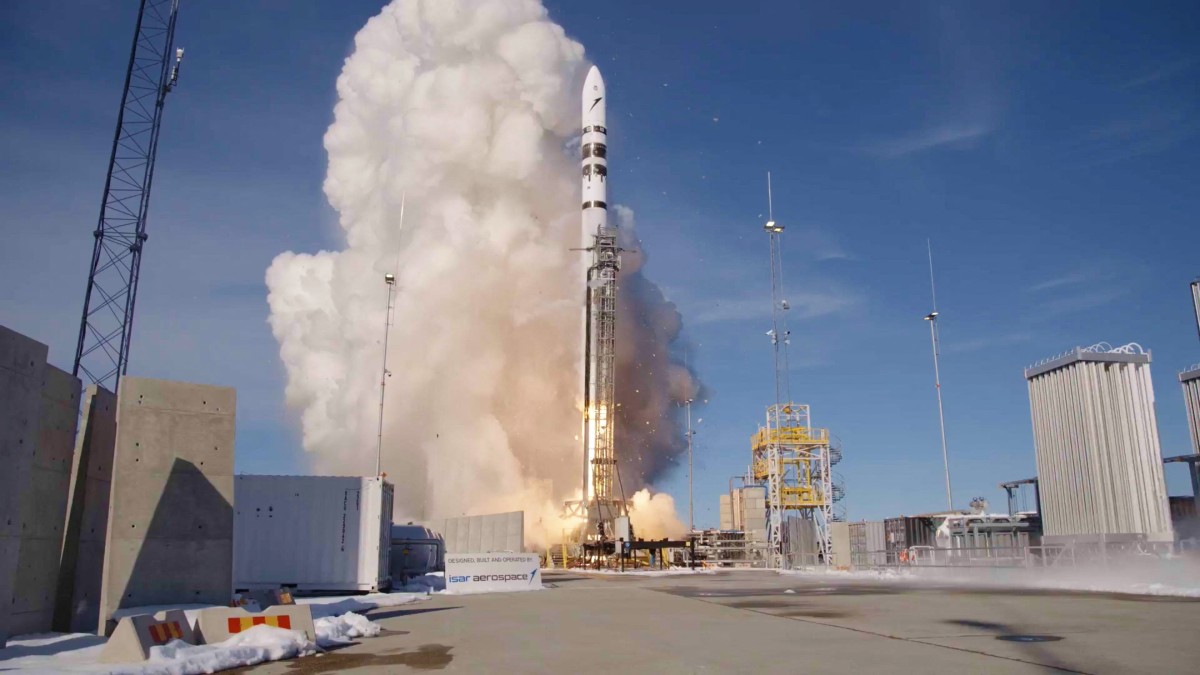Oslo, Norway — The first orbital rocket launched from continental Europe crashed seconds after blast-off Sunday, in a closely watched test for the continent’s bid to build a new space economy.
The Spectrum rocket, developed by German start-up Isar Aerospace, started smoking from its sides, then crashed back to Earth with a powerful explosion just after launching from Norway’s Andoya Spaceport in the Arctic, in live video broadcast on YouTube.
Isar Aerospace, which had said it did not expect to reach orbit with the launch, said the two-stage rocket fell into the sea, adding that “the launch pad seems to be intact”.
Andoya Space, the Norwegian public firm that operates the spaceport, said “crisis response” measures had been activated following the “incident”.
Regional police said no injuries or damage beyond the rocket itself had been reported.
Orbital rockets are designed to place loads such as satellites into or beyond Earth’s orbit.
Spectrum’s blast-off was the first of an orbital launch vehicle from the European continent, excluding Russia, and Europe’s first financed almost exclusively by the private sector.
The launch had been repeatedly postponed due to weather conditions.
‘Great success’ –
Isar Aerospace had downplayed expectations ahead of the launch, saying the goal was not to reach orbit in its first attempt.
“Our first test flight met all our expectations, achieving a great success. We had a clean liftoff, 30 seconds of flight and even got to validate our Flight Termination System,” said Daniel Metzler, the firm’s co-founder and chief executive.
The 28-metre (92-foot) tall, two-meter diameter rocket has a one-ton carrying capacity, but was unloaded for the test flight.
A first European orbital launch attempt was made in 2023 by billionaire entrepreneur Richard Branson’s Virgin Orbit.
It attempted to use a Boeing 747 to launch a rocket into orbit from southwest England, but failed, and the company folded.
‘New Space’ –
Europe has had no access to Russian space stations or launchers since Moscow’s 2022 invasion of Ukraine, which sent diplomatic relations on a downward spiral.
Europe’s space industry has also seen delays in the development of the Ariane 6 rocket and the suspension of the Vega-C satellite launcher after an accident.
It wasn’t until March 6, when the first commercial flight of an Ariane 6 rocket took off from French Guyana, that Europe was able to regain launch independence after several months without its own access to space.
While the US already has giants such as Elon Musk’s SpaceX and Jeff Bezos-founded Blue Origin, in Europe, commercial space activities driven by private companies — dubbed “New Space” — are still in their infancy.
Isar Aerospace was founded in 2018 in Munich.
Europe is also home to Germany’s HyImpulse and Rocket Factory Augsburg (RFA), French groups Latitude and MaiaSpace and Spain’s PLD Space, all racing to establish themselves as key players in the sector.
Sunday’s launch generated “tons of data that the teams can now evaluate and learn from”, an Isar Aerospace commentator said on the YouTube live stream.
In parallel with the development of new rockets, a number of spaceport projects have emerged across Europe, from the Portuguese Azores to the British Shetland Islands, Norway’s Andoya and Esrange in neighboring Sweden, many vying to be the first to launch.








